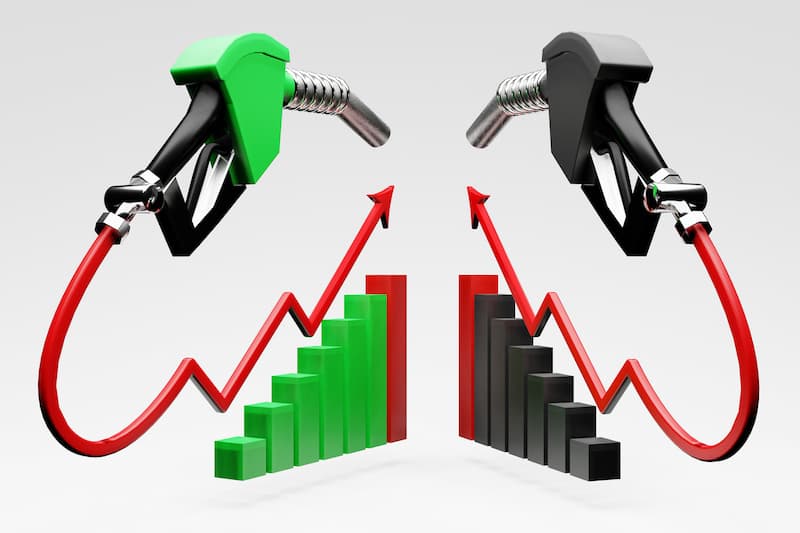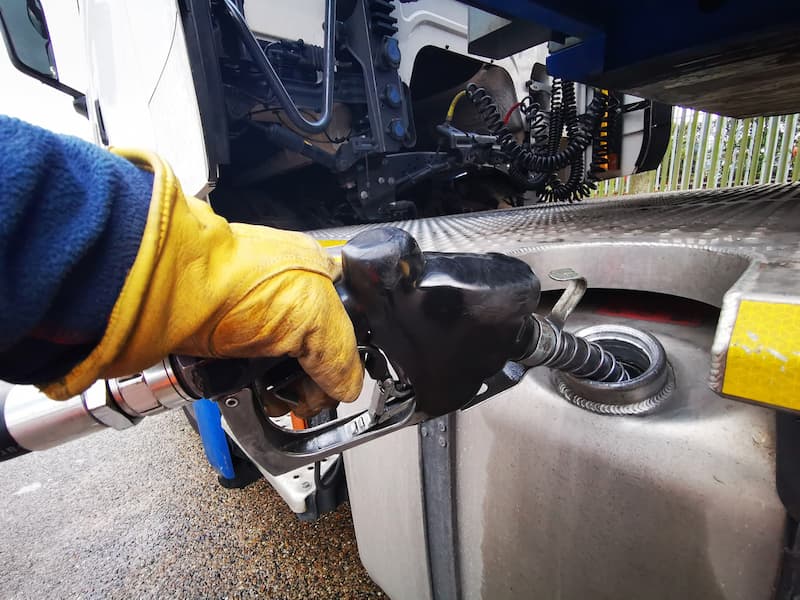HGV Fuel Price Predictions for 2023
Rising fuel prices are a constant concern for commercial fleet managers as they explore ways to reduce company expenses. Unfortunately, recent years have seen many erratic changes in fuel prices, with staggeringly high increases creating significant challenges for fleet managers.
Current UK Fuel Duties
In Spring Statement 2022, the UK government announced that rates of Fuel Duty would be temporarily reduced for 12 months. This included cutting rates for diesel and unleaded petrol by 5 pence per litre (ppl), with a proportionate percentage cut (equivalent to 5ppl from the main Fuel Duty rate of 57.95ppl) in other lower rates and the rates for rebated fuels, where practical. Additionally, the rate for Avgas will be reduced by 5%
The planned increase in fuel duty has been postponed from its original 12-month period and will now be extended through a second year. This is great news for the public at the forecourt petrol stations but for commercial fleet operations as well.
According to data accumulated by Brent Crude, the cost of purchasing crude oil for diesel production has had a reasonably steady fall from its peak in June 2022 of £99.55 a barrel to the current result of £66.93. This is subsequently affecting the price of diesel and petrol in the UK
Fuel Prices Across the UK
According to the Office For Budget Responsibility, in 2023, the fuel duty rate for petrol, diesel and more will be 52.95p per litre. Specifically, heavy oil diesel at the start of the year was at a rate of £0.5795 per litre but will change to £0.5295 per litre from March 23rd onwards.
As of mid-March, fuel prices around the country are 147.28p for petrol and 160.99p for diesel (according to the RAC). This drop from the recent peak of 191.53p per litre for petrol and 199.05p for diesel in July 2022 is beneficial but could soon change again.
Potential Diesel Price Increases in 2023
The RAC has warned businesses that price increases are likely as the oil producer group OPEC+ announced it would reduce the number of oil barrels produced by two million daily. This scarcity of material to create diesel and other fuels is expected to return the current price much higher to an estimated 190p per litre.
These likely events create many new challenges for fleet managers; this is the year when a company will need to explore new innovations to keep its business competitive within the sector.
What Can Fleet Managers Do?
In response to these fuel price figures, there are many new fleet manager trends in 2023 set to dominate the commercial fleet sector, such as efficient driving and on-site fuel storage investment.
Embrace On-site Wholesale Fuel Purchase
Filling up at public stations will generally mean long queues and extra delays. Fortunately, there is a solution, on-site bunded fuel tanks. This will be a combination of the following:
Investing in these can provide drivers with a private fuel station at your base facility. As a result, you can dispense this wholesale fuel to your drivers and even gauge the amount needed for the route the driver will take. This has the benefit of increasing control over your company’s fuel usage, reducing waste and saving on expenses significantly.
Encourage Efficient Fuel Driving
An HGV driver can improve their fuel efficiency by adopting good practices such as eliminating wasteful engine idling and conducting safe, steady driving. These may seem like minor improvements, but they will impressively positively affect your business’s fuel efficiency when maintained long-term.
When an engine is idling, the average 420hp (horsepower) truck will burn roughly two litres of fuel per hour. This includes time wasted in congested traffic, and engines left idle when parked. To avoid wasting this significant amount of fuel and wasting money, we highly recommend that drivers turn off their engines when parked. Additionally, avoiding heavy traffic with route planning will help avoid wasting fuel and delaying delivery times.
Efficient Driving Training
Aggressive driving is very tempting when aiming to complete work quickly. Driving faster, attempting to overtake and cutting corners are dangerous ways to run an HGV. Even if you avoid an accident, they will use more fuel, making these supposed cost-cutting measures pointless. Driver refresher training is a helpful tool to help curb these negative instincts and ensure that your driving is not only fuel efficient but has a high safety rating.
Streamlining your cargo isn’t always an option, but avoiding extra weight whenever possible is also an innovative idea for fuel efficiency. Unburdening your vehicle of unnecessary tools or materials and checking your vehicle before you start a job are good ways of assessing what you’ll need.
On-site Wholesale Fuel Dispensing by Fueltek
At Fueltek, we specialise in providing bespoke on-site fuel management systems for a broad range of companies across the UK. Some of the businesses we’ve worked with are:
After this initial investment, every company we’ve worked with in the past will now benefit from their easy access to wholesale fuel purchases and avoid the expensive complications related to these fuel price predictions, and you could too.
Wholesale will always be more cost-effective than forecourt prices or fuel card solutions, and your business can embrace it with your own private on-site fuel station. Although the different costs for petrol and diesel are stated earlier, they are sold at wholesale prices of 114.5p per litre. Contact us to discover how your company’s fuel expenses can be significantly reduced with our solutions.











